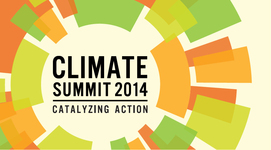 New York The 29th session of the General Assembly was accompanied with a Climate Summit on September 23 this past week. While trying to get to grips with what the Climate Summit was all about, I soon discovered that it was much about getting carbon pricing accepted as a mitigation measure for global warming. This time, like never before, both public and private actors were present at a Private Sector Forum lunch-on, preceded by a Business and Civil Society Special Session to demonstrate broad support for carbon pricing back-to-back with the 69th General Assembly gathering of the UN. World Bank Statement The Global Compact is the highest level appearance of a public-private partnership presumably aiming at the protection of global public goods. The Global Compact that connects multinational companies with the Secretary General's office of the UN and the International Finance Institutions like IMF and the World Bank, exercised quite some influence on this policy topic. Multiple voices joined together in one big choir jubilating the carbon pricing solution, already pre-cooked in a World Bank Statement, my senses were tested to the maximum to spot a single voice questioning the approach. Nobody at the meeting did. Even NGOs were united in their plea for carbon pricing. Not for no reason as there were strict criteria used to select the business partners that could attend the session (by invitation only): Leaders who sign up to the criteria agree to (1) set an internal carbon price high enough to materially affect investment decisions to drive down greenhouse gas emissions; (2) publicly advocate the importance of carbon pricing through policy mechanisms that take into account country specific economies and policy contexts; and (3) communicate on progress over time on those criteria in public corporate reports. Profit driven Nobody seems to raise the obvious question: Why would oil and gas companies stick out their necks to favour a system that is supposedly charging them with much higher production costs? I could not think of any other motivator but profit. Those companies that have sensed the public opinion best over the last decade already started with internal carbon pricing, not charging it to the client yet. This gives them a huge comparitive advantage over their competitors who have not yet developed the system or were not part of the Chicago Climate Exchange pilot, which saw an early demise in 2010. Is this just an attempt to revive it? Setting standards has always been used to push underperformers out of the market. Hence the firm belief in a free market mechanism that promises to bring the few that can still afford to pay highest quality for lowest price. The question is: Do we have faith in the market as a regulatory framework that compels us to do good and adhere to higher ethical standards? Monetization Soon the world will start monetizing all its natural resources, as China already showcased in Africa, basically allowing for trading them. If finance is not limited (like for some it seems it is not), what will prevent us from destroying the earth's natural ecosystems for short-term benefits? Carbon pricing, if not properly implemented, basically transfers the flaws we have experienced in the financial markets to natural capital markets, allowing for bubbles that burst with unprecedented consequences. I prefer not to live in a monetized world. And I hope, the girls and boys at the UN get back to their senses in time to question the proposals that now have broad support from industry, civil society agents and science circles, when further discussing how to reverse climate change and deal with its impacts already seen around the world. Peruvian rescue? In December some next steps will be taken in Lima, Peru, where the 20th UN Climate Change Conference (COP20) will be held. Lima, take your chance to bring in some critcal thinking before in 2015 Paris nails down an irreversable climate deal that will only aggravate the current problems. Getting to zero emissions globally should be the goal, not the provision of a 'right to exhaust'. It will turn carbon into a commodity market that will be highly vulnerable to corruption. It was obvious that the General Assemblies' agenda had been overshadowed by the recent events in the Middle-East and security threats they pose to the rest of the world. In analysing the cause of these conflicts, the Gambian and Iranian Presidents were quite outspoken pointing to previous unsuccessful Western engagement in the region and general neglect of the impact of their colonial past. Likewise the General Assembly (notably the 77 + China) has always stressed the importance of differentiated national commitments. I just want to add that carbon emission rights should not become the 'capital' that pays for 'development cooperation' in the future, replacing the already diminishing Official Development Aid. Private Sector and State Leaders at the Private Sector Forum and speaking at the 69th General Assemly in New York (source: UN Web TV)
0 Comments
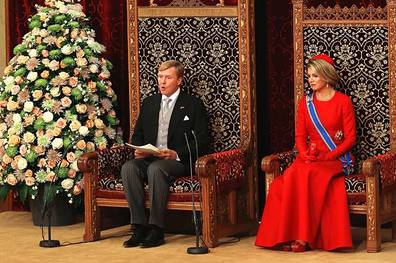 King Willem Alexander of the Netherlands delivering his speech King Willem Alexander of the Netherlands delivering his speech The flowers next to the throne resemble the image of a Christmas Tree. However, Christmas is still far away and no presents were found next to the tree or it should be Queen Maxima representing in her very image the Dutch connection to the world. Unlike the State of the Union earlier this year, this King's speech, introducing the proposed changes in the annual budget, was very much about the world. Pushed by the recent events in Ukraine, Syria and the Middle-East. Defence, humanitarian aid and investment Still the speech was not about investment. The budgets that saw some increase were humanitarian aid, defence and security. Are we finding out that our own success is turning against us? We still support state-building in places where the Nation State is only a heritage of a colonial past, and is left with a system that is alien to many peoples residing within the state boundaries. These so-called states lease large areas of ancestral soil to foreign companies relocating inhabitants to less fertile and even more vulnerable areas. How will these citizens ever consider the government legal representatives of the country? Entrepreneurs This leaves us with the complex question: Is it possible to properly invest? Do the Dutch have an alternative to offer to this massive land grabbing and neglect of local rights and realities? One example maybe current public private partnership proposals, that were discussed today at a workshop with the Dutch Enterprise Agency, aiming at food security and local market development. This agency has recently been created with the purpose to propel Dutch entrepreneurs into the world. The most remarkable statement in the King's speech was probably the announcement of a 'future fund' for small and medium enterprises. Yet another instrument to get the Dutch into the enterprising mode. However, has it been our trait? We have rather been good at trade and proselytising. The free world, on the other side of the Atlantic, was known for its entrepreneurial spirit. Those who remained in mainland Europe were the careful, more conservative ones. Hence, were not so much into enterprising. It takes a crisis to turn employees into entrepreneurs Where our higher agricultural education for years was financed from the Ministry of Economic Affairs, in 2016 this subsidy will come to a full stop, hence needs to be replaced by something else or austerity measures will be needed. Luckily the King's speech also had some promising language on the relevance of higher education, reintroducing the medieval patron-master class model. That is promising rhetoric for practitioners like myself, trying to fit into the education system. If only we could get rid of the managers... The latter is exactly what our new Executive Board is attempting, aiming at a non-hierarchical structure of result-responsible teams. Who knows, it may revive the entrepreneurial spirit in some of the faculty staff, suddenly rediscovering their potential, successfully combining craftsmanship with education. A new 'golden carriage' in the making? 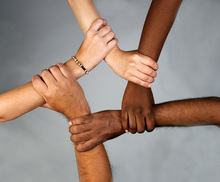 This week I attended two interesting lectures that I would like to reflect on in this blog. They were entirely different in topics and perspectives and still had much in common. The first one was a Studium Generale at Wageningen University entitled “The State You Are In” with Bertjan Verbeek, Professor International Relations at the Radboud University. Much of the talk was about Europe as the birth place of the Nation State and the power struggle between the 'Pope' and the 'King'. Certainly the definition of sovereignty as “absence of higher authority” helped in understanding this power struggle. According to Verbeek the state could be perceived as a Self Help Group. This triggered my attention as I recently have embarked on a program in the Horn of Africa that seeks to strengthen this concept of Self Help. Failed states Paradoxically, states cease to exist being a state if other states fail to recognize them (external sovereignty) even if they help themselves quite well. Subsequently they are referred to as failed states. Somalia being a case in point with Somaliland and Puntland claiming some kind of sovereignty. In the case of Somaliland it really is about the failure of recognition, primarily by its former colonial power Italy, not so much the failure of national institutions. There is quite a degree of control over territory, people and goods. The latter is known as internal sovereignty. Lack of the internal sovereignty is a much more fundamental threat to a state. It is the threat of citizens failing to stick together. In that sense there are quite a number of failed states in the making: Ukraine, Nigeria, The United Kingdom to mention a few. The personal is geopolitical This links perfectly to the subject of the second event I attended: an international symposium entitled “The Personal is Geopolitical: Story-telling and Familial Belonging in a Globalizing World”. The symposium was organized at the occasion of the inauguration of Dr. Lies Wesseling as holder of the special “Opzij” chair “Cultural Memory, Gender and Diversity” at Maatricht University. The title of her inaugural address is “The Weaving of Family: Narrative Practices and Cultural Remembrance in Transnational Adoption” a topic that is close to our heart as we also have an adoptive daughter. Her lecture pointed to the existence of fictitious narration in filling the gap that often exists for adopted children, which is often constructed by the adoptive parents. We have experienced first-hand the importance of a shared narrative, having lived as a family in Ethiopia for an extensive period, basically practicing a domestic adoption as an expat family. Around Christmas we will be spending time in Ethiopia again as a family and visit places that have shaped our shared history and sense of belonging. We will have the rare situation that our elder biological children have lived longer in Ethiopia and have more vivid memories than our adoptive daughter. When we share stories on Ethiopia she may feel less connected, even though Ethiopia is her country of origin. Hopefully our upcoming visit will bring these narratives closer together and weave our family ties stronger. At the same time the visit may trigger our adoptive daughter to more seriously consider her other identity linked to her appearance and skin colour. I suppose we would be an interesting case for quite a number of the social and/or anthropological scientists attending the symposium and having specialised in transnational adoption. Mobility and identity In a time of increased mobility, we see the control of states over its citizens decrease and multiple identities evolve as a result of migration, adoption and the like. As a result other grouping mechanisms tend to take over from the Nation State. For instance we connect quite well with expatriates who have also lived in Ethiopia. As a result religion has returned as a transnational grouping mechanism that shapes identities even stronger than before. Strange enough in the case of ISIS it seeks at least internal sovereignty as an Islamic state and therefore becomes a geopolitical reality in a strive to exercise power over people. I recognize that the Christian faith has no better record in Europe. The church has been vulnerable to this strive of power in the past. And even today the Vatican is a geopolitical reality with diplomatic ties with almost every country in the world (with the exception of countries like China, Saudi-Arabia and Nigeria). If at all ISIS manages to establish its own state it would be inconceivable for many countries in the world to maintain diplomatic ties with it. Why would the Vatican (basically a Christian State) be considered a positive force and would an Islamic State be considered a negative force? Is it not by virtue of support for universal humanitarian values and by what measure it supports them? The current Pope is quite popular due to his modesty, which helps the Holy Chair to be welcomed in many societies and even receiving broad support from secular segments of society. He shows respect for earthly authorities and international human rights while subjecting itself to a higher authority. In the case of ISIS only the latter features, straining relationships between people, segregating and condemning those who do not comply. In Europe the church has learnt from the past that such is unacceptable, though individual members and representatives of the church may still fall ill to this attitude of moral superiority. The Church’s strongest example of multiple belonging is Jesus Christ himself who humbled himself and bowed to earthly authorities while claiming that his identity and belonging was determined by another narrative, the citizenship of heaven. Fictitious or real. |
About meMy name is Reinier van Hoffen. U®Reading
Click here for a summary.
Also find the text of a lecture Dr. Achterhuis held at the 2012 Bilderberg conference. Archives
August 2022
|
AddressNachtegaallaan 26
Ede, the Netherlands |
Telephone+31 (0)6 1429 1569
|
info@uraide.nl
|
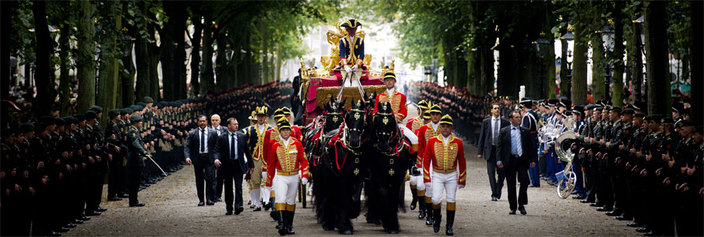
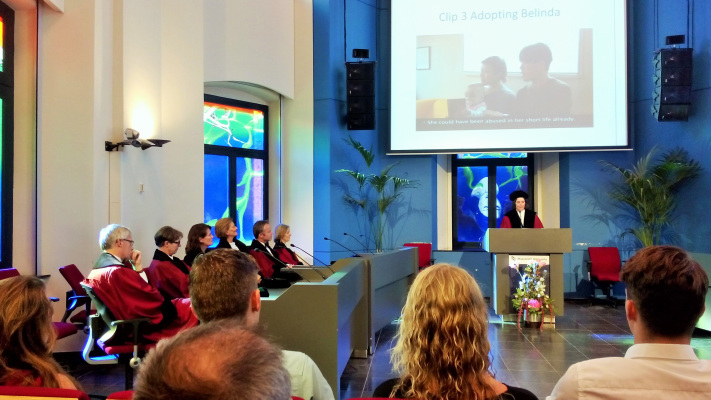
 RSS Feed
RSS Feed
















